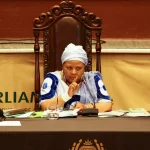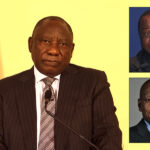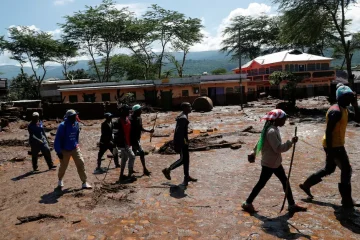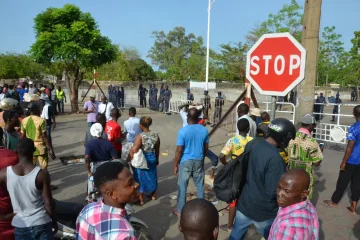AFRICAN MIRROR REPORTER
SOUTH African Defence Minister Nosiviwe Mapisa-Nqakula has denied deliberately contradicting President Ramaphosa in the description of last week’s unrest in South Africa as an insurrection.
Mapisa-Nqakula was forced to defend herself after the government said her recorded position, made during a briefing to Parliament that there was no insurrection, was made without facts.
She said: “The president has spoken. It was an attempted insurrection. I confined myself to counter-revolution. Ultimately remember, any element of counter-revolution ultimately may well lead to an insurrection in the country. Counter revolution is about doing all manner of things which are meant to undermine the authority of the state, which are meant to undermine our democratic country. That was the point I was making.
‘“There was never a deliberate or even a mischievous (act) to deliberately contradict the Commander-in-Chief, particularly because I am a member of the National Security Council. Not only that I do present reports on behalf of my team to the NSC. So any suggestion of deliberately contradicting the Commander-in-Chief, I believe, is mischievous.”
Government yesterday has admonished Defence Minister Nosiviwe Mapisa-Nqakula, who publicly contradicted President Cyril Ramaphosa.
In his special address to the nation on Friday, Ramaphosa defined the violence and looting that SA faced last week as an insurrection that sought to weaken and even topple the state.
On Sunday, Mapisa-Nqakula, during a briefing to Parliament’s Defence Committee, contradicted the president, saying there was no evidence of an insurrection.
She said: “What we see and we have also heard people making reference to an insurrection, a coup and the issue is it an insurrection then the insurrection must have a face. If it’s an insurrection against the government. If it is about a coup, the coup will also have a face but none of those so far talk to that. Our view is that we probably are seeing signs of a counter-revolution which is creeping in, in the form of criminality, thuggery and of course it is a very unfortunate situation.”
However, Khumbudzo Ntshaveni, the spokesperson for the government and acting Minister in the Presidency, reiterated that the government’s position, as articulated by Ramaphosa, was that the country had indeed faced an insurrection.
Ntshaveni told a media briefing that any view to the contrary was made without facts by the law enforcement agencies, including the military.
She said: We want to clarify that the position of (the) government is that, as articulated by the President, of an attempt at insurrection in the country. That perspective is informed by discussions at the National Security Council, which is chaired by the President. He receives briefings from the military commanders and also other law enforcement agencies. And to that effect, any contrary view…we don’t know where it comes from. It is not the view that is not supported by any facts by our law enforcement agencies, including the military.”
Ntshaveni did not answer on whether Ramaphosa would take action against Mapisa-Nqakula.
This is not the Defence Minister’s first run-in with the President. A few months ago, the President reprimanded her and docked her salary for three months, after she gave a lift to ANC officials in a state-owned plane during a trip to Zimbabwe in September 2020.
The President said then that Mapisa-Nqakula’s error of judgment was not in keeping with the responsibilities of a minister of cabinet. Ramaphosa found that the Minister:
- Did not “act in the best interest of good governance” as required by the Executive Members Code
- Failed to adhere to legal prescripts warranting care in use of state resources
- Acted “in a way that is inconsistent with [her] position” as required by the Code.












